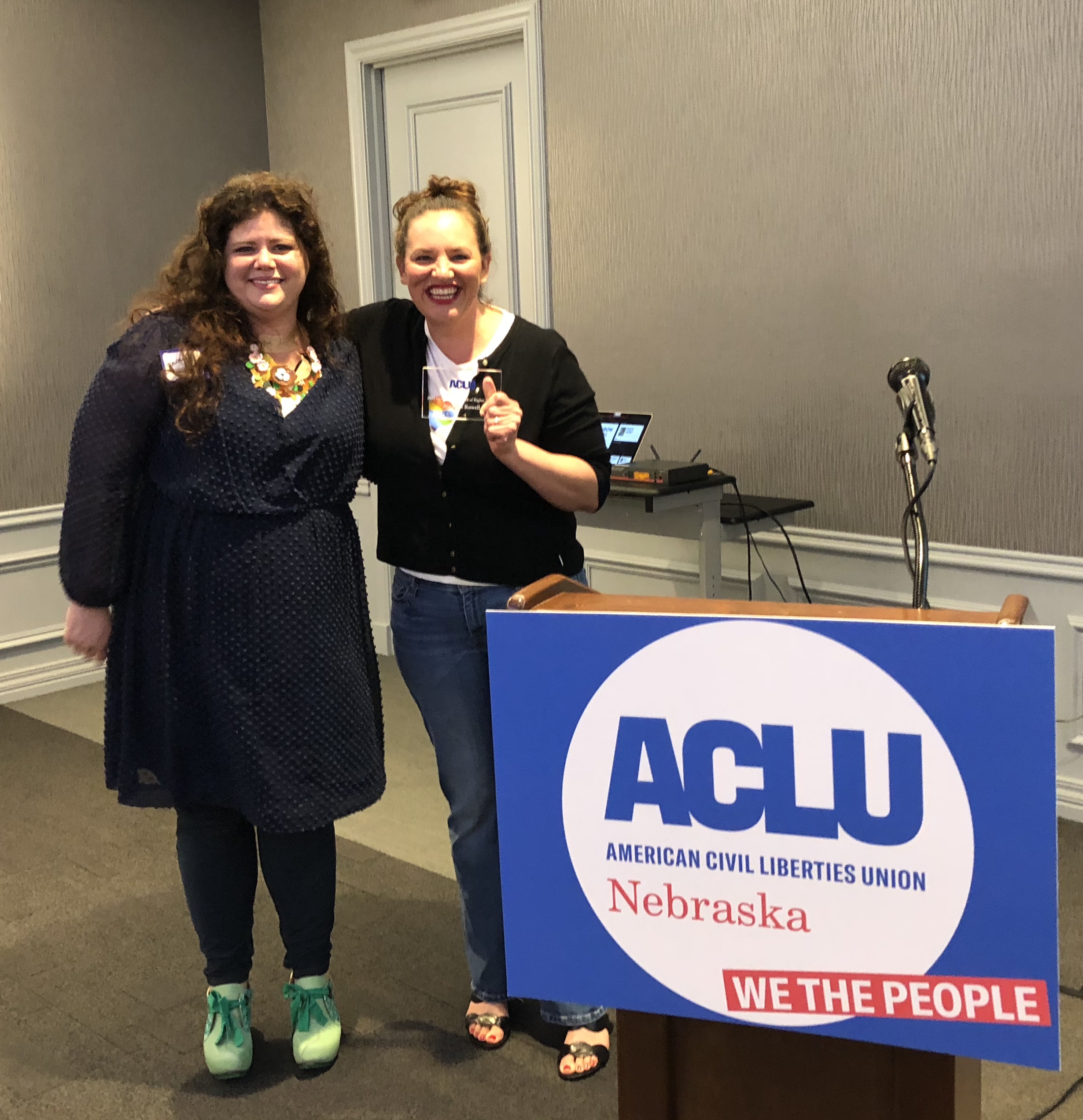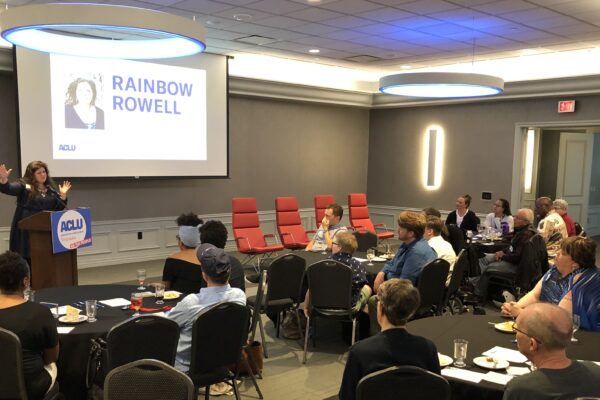By Daniela Rincon, communications intern at ACLU of Nebraska
Ideas are powerful. That’s why intellectual freedom is protected by the First Amendment—and it's also why sometimes government tries to suppress provocative ideas.
For nearly 100 years on the national level, and over 50 years in Nebraska, the ACLU has fought to make sure Americans have full access to ideas and the right to read what they want. Despite our many victories, there are still to this day misguided attempts to ban books. This fight came close to home when a book by beloved Nebraska author Rainbow Rowell was the recent subject of censorship attempts for her award-winning young adult novel Eleanor & Park.
The book is a love story set in Omaha that deals frankly with poverty, bullying, domestic abuse and racism. Eleanor—a redhead struggling with body-image issues and an abusive stepfather—meets Park, a biracial boy who feels like a misfit and has a passion for comic books. The two high school students unexpectedly fall in love while riding the school bus.
Despite its portrayal of real problems that today’s teenagers face, the young-adult novel has been challenged by schools, mostly under the guise of “offensive language.”
“There is a lot of it,” author Rainbow Rowell said in an interview with The Toast, “but it’s so bizarre to me that they’re objecting to the cursing because Eleanor and Park themselves almost never swear. I’m not anti-profanity, personally, but I use profanity in the book to show how vulgar and sometimes violent the characters’ worlds are.”
Rowell’s honest and captivating portrayals have also sparkled parental complaints regarding sexual language. After a group of librarians included Eleanor & Park in their high school summer reading program, two parents partnering with the Parents Action League convinced the library board to remove the book due to its “dangerously obscene” content. Several anti-censorship advocates got involved in the fight.
The issue was hotly debated and the board eventually concluded that the book was “powerful, realistic and honest, but not profane,” and kept it on library shelves. The ordeal was quite a surprise to the author, who based the story on her personal experiences.
"When these people call Eleanor & Park an obscene story, I feel like they’re saying that rising above your situation isn’t possible. That if you grow up in an ugly situation, your story isn’t even fit for good people’s ears. That ugly thing cancels out everything beautiful," Rowell had said.
Last year, Rowell went on to write Kindred Spirits, an ebook from which she donated all proceeds to the ACLU of Nebraska to support our work to defend rights guaranteed by our Constitution—including free expression and academic freedom under the First Amendment.
In recognition of her contribution of more than $10,000 donated from this project and for her body of work as a journalist and activist, the ACLU of Nebraska awarded our annual Defender of the Bill of Rights Award to Rainbow Rowell this summer.
At the award ceremony, Rowell said, "Once you start paying attention to the ACLU, you realize they never stop. I started to see the ACLU as this group of people who have been there defending my rights when I wasn't paying attention to them."
ACLU of Nebraska Executive Director Danielle Conrad said, “We are so pleased to be able to thank Rainbow for her generous support of our mission to protect freedom of speech, and as a fangirl of her work, it was a particular honor to grant her this award."
Rainbow’s experience is a telling example of how vigilant we all must be to protect the First Amendment rights provided by our Constitution. It cannot be up to some of us to decide what the rest of us can read. Authors are free to write books they want to write, and we all are free to read them if we wish.


